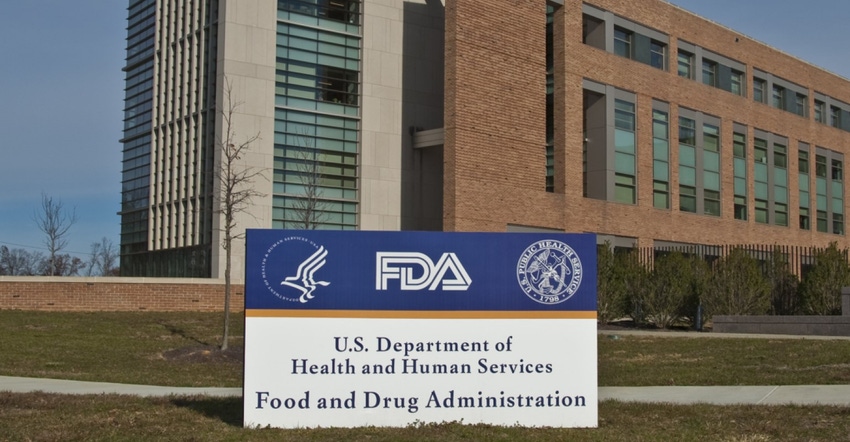State attorneys general used FDA’s declaration as “primary evidence" in a cease-and-desist letter that demanded retailers remove picamilon from the market, according to the Council for Responsible Nutrition.

Leaders in the dietary supplement industry are questioning the prudence of FDA’s decision to assist state law-enforcement officials with an investigation into an ingredient known as picamilon that is at the center of a lawsuit against GNC.
A written declaration by an FDA official was used by the states in their enforcement activities against picamilon, according to the heads of two trade associations in Washington. In communications addressed to senior FDA officials, industry leaders raised concerns that FDA’s written declaration and cooperation with the states undermined the agency and circumvented the public process.
Daniel Fabricant, Ph.D., executive director and CEO of the Natural Products Association (NPA), asked FDA’s acting commissioner in an Oct. 2 email whether he authorized a supplement official to provide the Sept. 28 written testimony, as federal regulations (21 CFR. 20.1) required. As he pointed out, the regulation authorizes an FDA official to testify if the commissioner or someone he appoints to act on his behalf determine the “testimony will be in the public interest and will promote the objectives of the act and the agency."
But Fabricant argued the written testimony “undermines" the agency rather than bolstering its objectives. Industry leaders noted FDA hasn’t taken any action on picamilon, the ingredient in question, or made a public declaration that it’s illegal in dietary supplements.
“FDA isn't supposed to serve as the states’ witnesses if it undermines the agency's authority," Fabricant, the former director of FDA’s Division of Dietary Supplement Programs (DDSP), said Wednesday in an email to Natural Products INSIDER. “It does here."
Fabricant addressed the email to FDA senior officials, including acting director Stephen Ostroff, M.D. An FDA spokesperson said Thursday she could not comment on the email.
Under the standard set by the federal regulation, “a deposition or other testimony or information sought to undercut the FDA's regulatory decisions are unlikely to be viewed by the agency as ‘promot[ing] the objectives of the act and the agency,’" Fabricant stated in the Oct. 2 email to FDA officials. “As the agency has not taken action against the ingredient in question at present, it does not have any current restrictions from doing so. Should the agency currently find the ingredient violative, which appears to be the case from the affadavit and fail to act, that is very concerning and furthermore it would make this testimony at odds with 21 CFR 20.1(c)."
Earlier this week, the head of the Council for Responsible Nutrition (CRN) expressed “grave concern" that FDA’s determination was made without going through the public process. The declaration that was shared with state attorneys general precluded input from the dietary supplement industry, wrote Steve Mister, CRN’s president and CEO, in an Oct. 27 letter addressed to FDA.
Cara Welch, Ph.D., a former NPA executive who signed the picamilon declaration, is deputy director in the supplement division. State attorneys general used FDA’s declaration as “primary evidence" in a cease-and-desist letter that demanded retailers remove from the market picamilon, according to Mister. In a lawsuit filed last week against GNC, Oregon Attorney General Ellen Rosenblum also attached the declaration. Welch concluded picamilon does not qualify as a dietary ingredient.
“Our difficulty here is with the provision of a declaration privately to a state law enforcement agency on an issue of law that has never been raised by FDA," Mister wrote in the three-page letter. “CRN believes this sets a dangerous precedent regarding the cooperation between FDA and state law enforcement on matters of federal law not previously noted to the industry."
Mister said FDA hasn’t issued consumer advisories on picamilon or sent warning letters on it, and to CRN’s knowledge, picamilon hasn’t been the source of anything that indicates the substance poses a safety concern.
“This process did not occur in a public forum, and therefore precluded any input from the industry in response to FDA’s characterization of the ingredient or the chance to present its own evidence as to why this ingredient can qualify as a legal dietary ingredient," Mister wrote.
Separately, Mister raised concerns in the letter that were previously articulated by Fabricant: namely that FDA was improperly delegating its authority over dietary supplements to the states.
“The FDA has an obligation to evaluate the interests of the agency in preserving its supremacy over the regulation of products under its jurisdiction," Mister wrote. “Providing testimony to a state agency on a matter in which the agency has not spoken undermines the interests of the FDA rather than promoting it."
The agency responded to such criticism last week. Although FDA can take action under existing law to remove a dietary supplement from the market, it must first establish the product is adulterated, misbranded or not made in accordance with current good manufacturing practices (cGMPs)," Marianna Naum, an FDA spokeswoman, said in an emailed statement.
“The FDA prioritizes enforcement actions," she explained, “based on available resources and the level of safety concern identified." Naum cited the agency’s “limited resources to monitor the marketplace for potentially harmful dietary supplements."
During an interview Oct. 8 at Informa Exhibitions’ SupplySide West conference and exposition in Las Vegas, Welch expressed support for the actions of other groups, including industry, academia, and state and federal agencies, in ensuring compliance with the law and safe products.
“We are looking to work with all of those groups to make sure that the products that are on the market are compliant: compliant with labeling, compliant with manufacturing, compliant with ingredient status [and] ingredient safety," said Welch, who served as interim director of the supplement division for four months.
About the Author(s)
You May Also Like






.png?width=800&auto=webp&quality=80&disable=upscale)